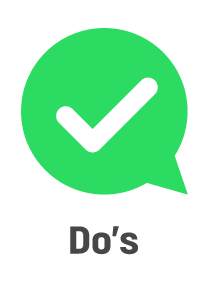EXCENTRIC SHEDS LIGHT ON THE DO’S AND DONT’S OF WRITING FOR SEO
Search Engine Optimization (SEO) is the process of increasing the visibility of any website, blog or online store on search engines, such as Google, Bing and Yahoo. But why is it so important?
Globalization and a sheer explosion of Internet traffic and online data result in increased competition. More and more businesses, worldwide, are now competing for the same keywords. A search engine optimized site is essential to stand out from the crowd. SEO helps to increase keyword ranking and drive organic and referral traffic to your website. Having a presence in the top positions for the keywords also builds trust with your audiences.
There’s a definite need to write for SEO, to get people’s attention and to drive traffic to your website. Now that we answered the “Why”, shall we tackle the “How”? Unfortunately, it’s not as straight forward, and best practices have dramatically changed over the years.

What NOT to do:
- DO NOT keep up the bad practice of Keyword Stuffing
- DO NOT jam a keyword in any tag possible
- DO NOT just produce web copy for search engines, neglecting your target audience
- DO NOT exact keyword match

What should you do?
- Content, content, content: Most importantly, focus on high quality content. What matters most is to solve the searcher’s query.
- Intent matching has replaced exact keyword matching. Again, keep the end user in mind and try and figure out what the searcher’s intent is.
- Tags: Include your keyword(s) in the title element and the body content. If possible, also include it in the H1 and H2, the URL field, the image alt attribute and the meta description.
- Association: Aim to employ words, phrases and concepts that search engines would associate with the search query (for example, if you talk about New York neighbourhoods, name the boroughs).
Feeling overwhelmed?
Try this five-step approach next time you are writing for SEO:
1.
Make a list of all the keywords your page is targeting.
Remember, they should all share the same intent.
2.
Define what the searchers are trying to accomplish when they search those queries.
3.
Visuals always help!
Create a visual layout of your page, allocating the keywords you identified.
4.
Write the page’s content.
Then review the keyword list and insert what’s missing.
5.
What’s your page’s hook? Don’t have one yet?
Craft one and add it to differentiate your page from others.
Still feeling lost?
We’ve got you covered! Our team at Excentric can assist you in optimizing your website.
Get started
Find out how Excentric SEO services can improve your search rankings.








Sorry, the comment form is closed at this time.